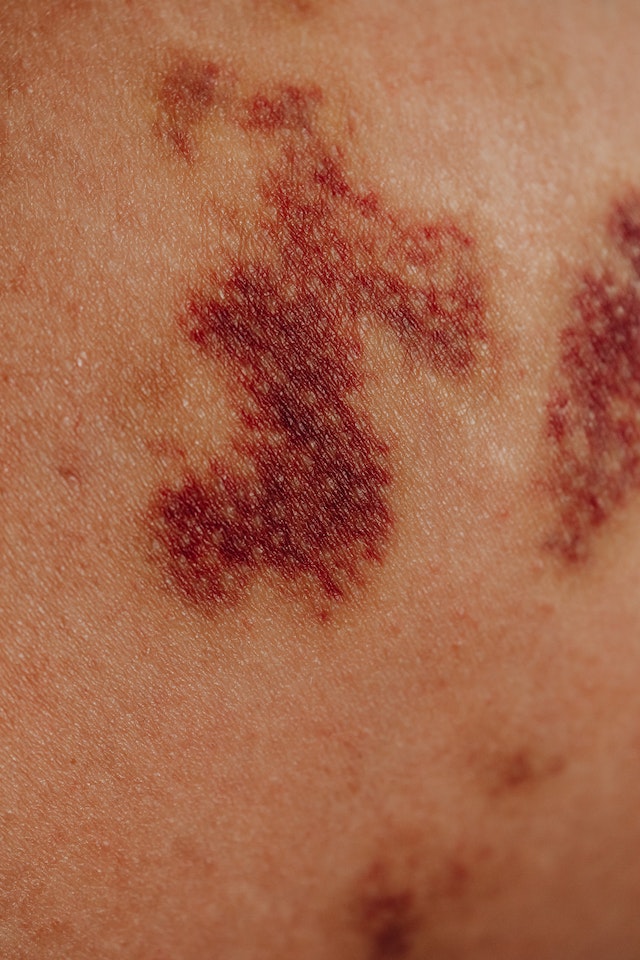In this article, we will be discussing music therapy for Schizophrenia and some of the best tips you can use to prevent and cure Schizophrenia in your day-to-day life and lead to a prosperous and healthy lifestyle.

In the US only one per cent of people are diagnosed with Schizophrenia. But about 60% to 85% of patients who suffer from Schizophrenia faces mental disorder and a combination of hallucinations which may cause your brain to function abnormally and disable its proper functioning.
Schizophrenia requires a lifetime treatment and early treatment may control the symptoms before the disease get too serious.
What is Schizophrenia?
Schizophrenia, a chronic brain disease that affects less than one per cent of Americans, is a serious and persistent condition. When schizophrenia is active symptoms include hallucinations and delusions. They can also be accompanied by disorganized speech, difficulty with thinking, and a lack of motivation. With treatment, the majority of symptoms of schizophrenia can improve, and the chances of a recurrence are reduced.
Research is advancing innovative and safer treatment options for schizophrenia. Researchers are also unravelling the causes by using genetics and behavioural research. They use advanced imaging techniques to examine the structure and function of the brain. These approaches promise new and more effective treatments.
It is possible that schizophrenia’s complexity helps explain the misconceptions surrounding it. Schizophrenia does not mean that a person has a split personality or multiple-personality. The majority of people with schizophrenia do not behave in a more violent or dangerous way than the rest of society. It is true that limited mental health services in the community can lead to homelessness or frequent hospitalizations. However, it’s a myth that people with Schizophrenia end up in hospitals or homeless. The majority of people with schizophrenia are either living with their families, in group homes, or on their behalf.
Researchers have found that music therapy for schizophrenia is a condition that affects both men and women equally, but it may be more prevalent in men. The rates are the same around the globe. People with schizophrenia have a higher risk of dying younger than the average population. This is largely due to high rates of coexisting medical conditions such as diabetes and heart disease.
Schizophrenia in pop culture is often portrayed as violent and a condition that makes those who are diagnosed dependent. This is not true for most patients. With the right treatment, people with Schizophrenia can enter the workforce, become independent and form relationships.
Symptoms of Schizophrenia:
The disease can be defined by episodes where the patient is unable to distinguish between real and non-real experiences. As with all illnesses, severity, duration, and frequency can vary. However, for people with schizophrenia, severe psychotic symptoms are often reduced as they age. Stress, alcohol, or illegal drugs can increase symptoms.

The first symptoms of schizophrenia are usually seen in young adulthood. They must last for at least 6 months before a diagnosis can be made. Men usually experience their first symptoms in their late teens or their early 20s, while women are more likely to be diagnosed in their early 30s. Early signs can include troubled relationships and poor performance in school.
A psychiatrist must first conduct a complete medical exam to rule out other medical or neurological illnesses that may mimic schizophrenia and provide proper music therapy for schizophrenia.
- Delusions. False beliefs are not grounded in reality. You may think that you are being harassed or hurt by someone, that certain gestures and comments are being directed towards you, or that you possess some exceptional abilities or fame. Another person might be in love with or be interested in you. Most people with schizophrenia have delusions.
- Hallucinations. These are usually a result of seeing or hearing something that doesn’t exist. For the person suffering from schizophrenia, these hallucinations have all the force and impact as if they were a normal experience. Hearing voices is one of the most common types of hallucinations. Unorganized speech is a sign of disorganized thinking. Communication can be affected, and the answers to questions could be completely or partially unrelated. Word salad, or the use of meaningless words, is a rare example of speech that’s difficult to understand.
- Abnormal motor behaviour or extreme disorganization. It can manifest in many ways, ranging from childlike silliness and agitation to unpredictability. The behaviour is not focused on a specific goal. This makes it difficult to complete tasks. The behaviour can be a lack of response or a complete lack, as well as resistance to instruction, an inappropriate posture or a bizarre posture.
- Negative Symptoms. This is a reduced or inability to function normally. The person may not take care of their personal hygiene, or they might appear emotionless (they don’t speak in a monotone, or make no eye contact or facial expressions). The person may also lose interest in daily activities, withdraw socially, or be unable to feel pleasure.
Causes?
It is not known what causes schizophrenia. Researchers believe a combination of physical, genetic and psychological factors, as well as environmental influences, can increase a person’s risk of developing schizophrenia.

A stressful or emotionally charged event in a person’s life could trigger a psychotic attack. It’s still not clear why some people experience symptoms and others don’t.
contd on music therapy for schizophrenia…….
Risks?
Researchers have identified several factors that may contribute to schizophrenia.

- Genetics. A family history of schizophrenia, especially a parent with the condition or a sibling who has it, increases a person’s risk of developing the disorder.
- Environment. There are many factors that can increase the risk of schizophrenia. Your risk increases slightly if you were born in the winter. Risk can be increased by certain illnesses that affect the brain, such as infections and autoimmune diseases (in which your immune system attacks a part of your body). It can be caused by extreme stress over a long period of time.
- Birth and development circumstances. The way you develop before your birth can affect schizophrenia. If your mother suffered from gestational diabetes or preeclampsia during her pregnancy, you are at a higher risk for schizophrenia. If you are underweight or there are complications in your birth, such as your mother having to have an emergency Cesarean Section, your risk of schizophrenia increases.
- Use of recreational drugs. Researchers have found a link between schizophrenia and certain recreational drugs. This is especially true when they are used in large amounts or earlier in life. One of the most well-studied links is heavy marijuana use in teens. There is disagreement over whether marijuana use causes schizophrenia directly or just contributes to it.
More risks that can promote Schizophrenia are:
- Suicide, suicide thoughts, suicide attempts
- OCD and anxiety disorders
- Alcohol and drug abuse
- Inability to attend school or work
- Financial instability
- Homelessness
- Social Isolation Health and medical issues
- Being victimized
- Aggressive behaviour etc.
contd on music therapy for schizophrenia……..
Factors increasing Schizophrenia:
Genetics

Schizophrenia is a disorder that tends to run through families, although no one gene is believed to be the cause.
Different combinations of genes are more likely to make people susceptible to schizophrenia. Having these genes doesn’t mean that you will develop schizophrenia.
Twin studies provide evidence that the disorder may be inherited in part. Identical twins have the same genes.
If one twin develops schizophrenia in identical twins then the other has a chance of 1 in 2. It doesn’t matter if they were raised separately.
When one twin has schizophrenia, and the other twin does not, it is only 1 in 8 that the other twin will develop the same condition.
This is higher than the overall population where the risk is 1 in 100. However, this does not mean that genes are the only factor in schizophrenia development.
Differences in brain development
There are subtle differences between the brain structures of schizophrenia patients and those without.
These changes do not occur in all people with schizophrenia. They can also happen in those who are not suffering from a mental disorder. They suggest that schizophrenia is partly a brain disorder.
Neurotransmitters
Neurotransmitters, also known as chemicals, are substances that transmit messages between brain cells.
Some neurotransmitters may be different in the brains of people with schizophrenia.
Some people can benefit from medicines that lower dopamine and other neurotransmitters.
This indicates that neurotransmitters may play a part in the development and progression of schizophrenia.
contd music therapy for schizophrenia…..
The trigger for Schizophrenia:
Stress

Stressful life events such as:
- Bereavement
- Losing your home or job
- divorce
- The end of a romantic relationship
- Abuse – physical, sexual or mental
These experiences, while stressful, are not schizophrenia. These experiences can, however, trigger schizophrenia in those who are already susceptible.
contd music therapy for schizophrenia…
Drug Abuse
According to studies, using drugs such as cannabis, cocaine, LSD, or amphetamines can increase your risk of developing schizophrenia or psychosis.
It is unclear if people with schizophrenia are more likely than others to use drugs or if their symptoms are caused by drug use.
If you have had episodes of schizophrenia or psychosis, taking drugs can make symptoms worse or cause a relapse.
Researchers have found that teens and young adults who use cannabis regularly are more susceptible to schizophrenia after in life. Cannabis with higher levels of THC may increase the risk.
Prevent Schizophrenia
It’s impossible to completely prevent schizophrenia. However, sticking to the prescribed treatment can prevent relapses and worsening symptoms. Researchers think that by learning more about the risk factors associated with schizophrenia, they can easily diagnose schizophrenia and treat patients in the early stages.
More on music therapy for schizophrenia…
Music Therapy for Schizophrenia
Music therapy is a clinical application of music for achieving individualized goals, such as stress reduction, mood improvement and self-expression. This is a well-established, evidence-based form of therapy in the medical community. Listening, singing, playing an instrument, or creating music are all possible experiences in music therapy. Music skills and talents are not necessary to participate.

Music therapy techniques (music therapy for schizophrenia) can range from listening to music to group sessions to playing an instrument, composing songs or writing your own.
The American Music Therapy Association concluded that music therapy can improve schizophrenia patients’ global state, mental condition, general functioning and social functioning.
The study highlights the following specific outcomes:
- Reduced muscle tension
- Reduced anxiety/agitation
- Enhancing interpersonal relationships
- Motivation to work harder
- Self-image improvement
- Self-esteem increases
- Verbalization increases
Conclusion
This review on music therapy for schizophrenia suggests that music therapy may help schizophrenia, but more research is required to confirm these positive results. This research should focus on the long-term benefits of music therapy, and the quality and outcomes of music therapy.
We hope you found the solution to your problem in this article.
Are you ready to embark on a journey of brain rewiring and unleash your true potential? Look no further than Manthan Hub, the ultimate app for personal growth and transformation.
ManthanHub is a cutting-edge platform designed to help you rewire your brain, optimize your cognitive abilities, and achieve your goals with greater ease. Whether you’re seeking to enhance your focus, improve your memory, boost your creativity, or overcome limiting beliefs, Manthan Hub has you covered.
With our state-of-the-art brain rewiring techniques and comprehensive course offerings, you’ll have access to a wealth of knowledge and tools that empower you to reshape your brain’s neural pathways for optimal performance and well-being. Our courses are crafted by leading experts in the field of neuroscience, psychology, and personal development, ensuring that you receive the highest quality guidance and support on your transformative journey.
What sets ManthanHub apart is our user-friendly app interface, which makes it effortless to navigate through the courses, track your progress, and engage in interactive exercises and activities. You’ll have access to a variety of engaging multimedia content, including videos, audio exercises, guided meditations, and interactive quizzes, ensuring an immersive learning experience.
Join the thriving community of like-minded individuals on ManthanHub, where you can connect with fellow learners, exchange insights, and receive support and encouragement along your brain-rewiring journey. Our platform fosters a supportive and inspiring environment, where you can learn, grow, and thrive together.
Don’t wait any longer to unlock your brain’s true potential. Download ManthanHub today and embark on a transformative journey toward personal growth, enhanced cognitive abilities, and a life of limitless possibilities.
Remember, your brain has the power to change, adapt, and rewire itself. With Manthan Hub, you hold the key to unlocking your brain’s full potential. Start rewiring your brain today and watch yourself soar to new heights.
- Kundalini Yoga Benefits
- Can Ayurveda Cure Digestive Problems?
- Benefits of planting Tulsi at home
- Reasons behind why not eating onion and garlic?
- How to Cure Depression with Yoga
- Best ways to start your day positively
- 15 Tips to Make Your Diet Healthier
- Benefits of walking daily





